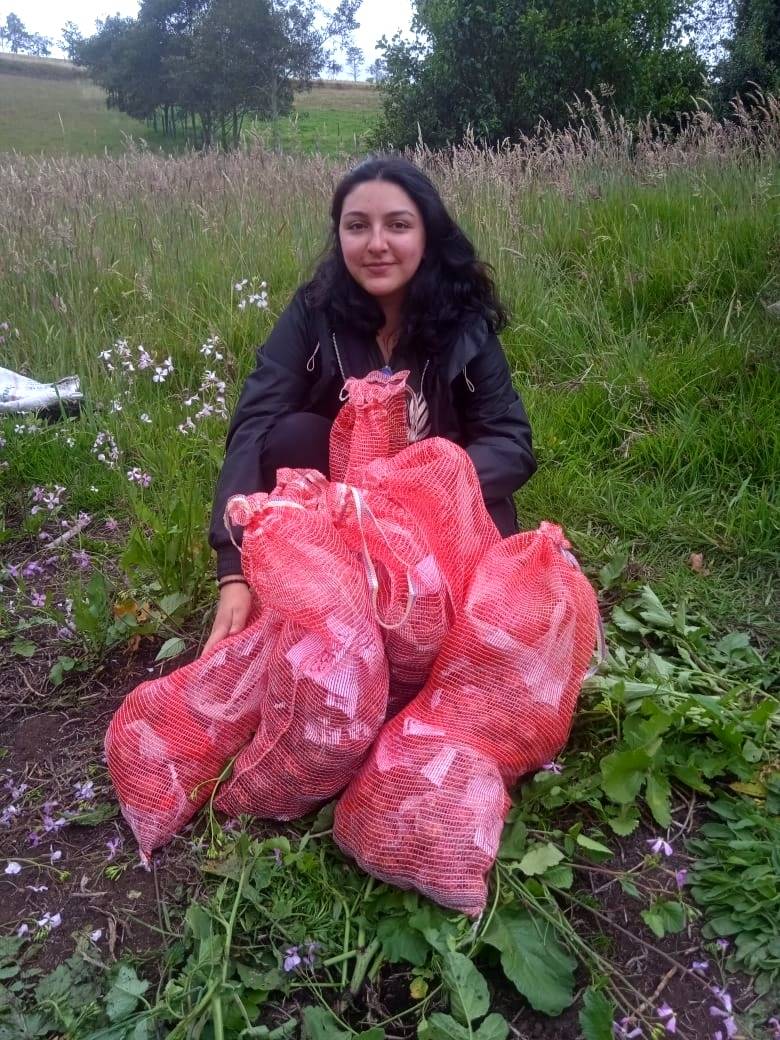Mariana Jaimes, a student of the biology program of the Pontifical Javeriana University, tells us about her work "Biological management in the field with entomopathogenic nematodes and baculovirus, of the Guatemalan moth in native potato

The Guatemalan moth is one of the most limiting pest insects in potato cultivation. The damage is caused by larvae that penetrate the tuber, making galleries in which it feeds and excretes. These galleries speed up the process of rotting of the tuber which cannot be used either as seed or for human or animal consumption. The management of this insect is carried out mainly through conventional chemical methods with insecticides based on organophosphate compounds, pyrethroids and carbamates, with a high impact on the environment and on the health of producers and consumers. It is important to generate alternatives that promote integrated management, where cultural strategies predominate (good quality seed, hilling), biological (use of entomopathogenic nematodes, baculovirus, parasitoids), ethological (use of pheromones) and chemical management, as a last strategy.
Mariana Jaimes, student of the biology program of the Pontifical Javeriana University, tells us about her degree work "Biological management in the field with entomopathogenic nematodes and baculovirus, for the Guatemalan moth in native potato" under the Root to Food project financed by FONTAGRO.
https://www.youtube.com/watch?v=0GOdvXVxQZY




